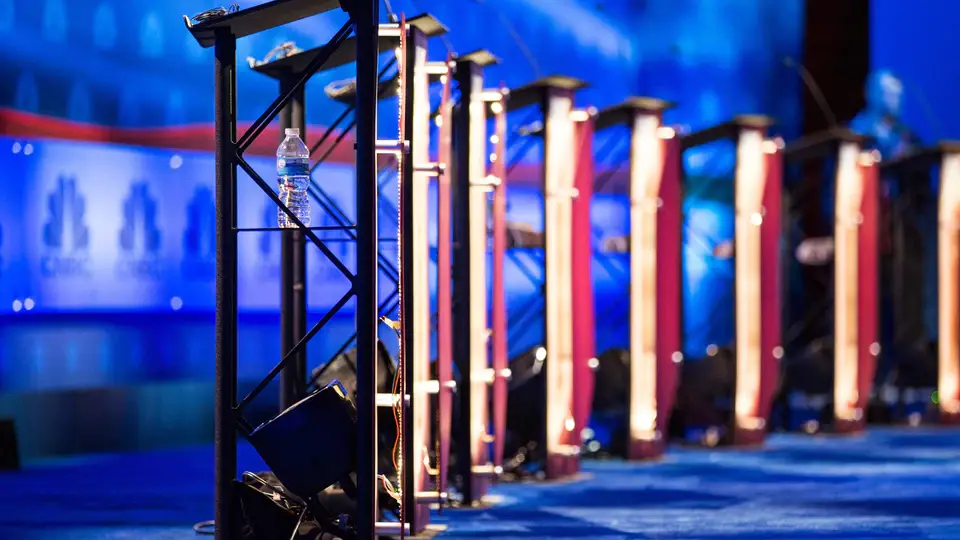The candidates just keep coming, and coming, and coming. At this point, by the time the first Democratic debate rolls around on June 26 and 27, there could be more than 25 declared candidates that might qualify for one of twenty debate slots.
Unlike 2016, when the Democratic National Committee (DNC) worked at Hillary Clinton’s quiet request to limit the number of debates and thereby limit her exposure to potential challengers, 2020 is an entirely different animal.
The consequences of allowing for 20 debate participants, split over two nights, with each group of ten randomly selected from the field, is starting to worry some former DNC officials.
The worrying part may well come to fruition depending on how the field is split over two nights. Imagine a scenario where the two top polling candidates, Joe Biden, and Bernie Sanders, end up on separate nights. Obviously, both nights will be watched by a wide audience, but for someone like Bernie, who is now fighting for territory from behind according to most polls, he needs the opportunity to take some shots in Biden’s direction.
As The Hill notes, Bernie complained a lot about the lack of debates in 2016, though the remedy in 2020 may be more than he bargained for:
In an ironic twist, the changes the DNC made after Sanders complained about the limited 2016 debate schedule might end up hurting him now that he’s near the top of the polls.
Sanders and other top contenders face the possibility of getting crowded out by the lower-tier candidates, who make up more than half the field.
“It was smart to add the grass-roots fundraising component, but when you throw in the 1 percent polling requirement, now all these random people get a spot on the stage,” said one former DNC official.
“I’m all for inclusion and competitive primaries, but no one can tell me it’s actually good for us to have this many candidates on stage. It wasn’t good for Republicans and they at least had an undercard debate. My fear is the bullsh*t candidates will take away from our legitimate ones. We saw how that worked for Republicans. They nominated Donald Trump.”
The question is which candidates does this former DNC official consider to be bullsh*t candidates and which ones are legitimate? Perhaps they’re referring to all the candidates who barely meet the threshold at 1% polling support who could be standing next to Bernie Sanders on a crowded stage, a stage which lacks Joe Biden.
The fear about testing these brand new rules at the first Democratic debate, to be held in Miami, is that there is an unknown aspect to it with the randomly selected slate for each night of the broadcast.
In 2016, the Republican National Committee at least took explicit steps to separate the top and mid-tier candidates from the, ahem, “bullsh*t” candidates.
Some DNC officials, however, have made peace with the fact that it’s impossible to please every candidate and campaign, no matter what flavor of debate rules are imposed:
“There are folks who are still unhappy, there are folks who will never be happy,” said Ray McKinnon, a DNC member from North Carolina and delegate for Sanders in 2016. “But I believe this iteration of the DNC has done everything, not perfectly, but has been intentional about not putting a finger on the scale.”
Perhaps the last line is crucial. Tom Perez, Chairman of the DNC, is so abjectly scared of the appearance of impropriety, which was alleged during the 2016 cycle, that he’s doing his level best to simply let as many candidates as possible get access to the debate stage while also scheduling a large number of debates.
In the end, Perez’s move will mean that no candidate can complain that there weren’t enough debate opportunities, nor will they be able to complain that the threshold was too high which excluded lesser-known candidates simply because they didn’t have the name recognition.
On the contrary, the complaints will come from the top tier of candidates, like Biden and Sanders, that their message is getting drowned in a sea of one-percenters. That’s one-percenters in terms of polling support, not wealth.
Beyond the potential for candidates getting lost amid the large field, the other concern is that with so many candidates and such limited time, the inclination will be to go for the soundbites rather than substance:
Some Democrats are worried that the massive stage of contenders splitting time will amplify the candidates’ worst instincts as they try to stand out from the pack at their first big moment in front of a national audience.
“The whole thing is ludicrous, and no one should be referring to these as debates,” said Jonathan Tasini, a liberal strategist. “It will be a series of soundbites and desperate attempts by candidates to stand out or avoid some major gaffe.”
Donald Trump became the master of the debate soundbite during the 2016 cycle on the Republican side. He knew what to say and to whom to say it to elicit the biggest applause or boo, depending on the issue.
If the one-percenters want to make a splash, they’ll study up on how to stand out and get noticed, which may create some painful debate exchanges as they fight and jockey for screen time against their Democratic colleagues.
In the end, we won’t know how these rules will work out until we see it play out on live television before our very eyes later in June.
Donate Now to Support Election Central
- Help defend independent journalism
- Directly support this website and our efforts
